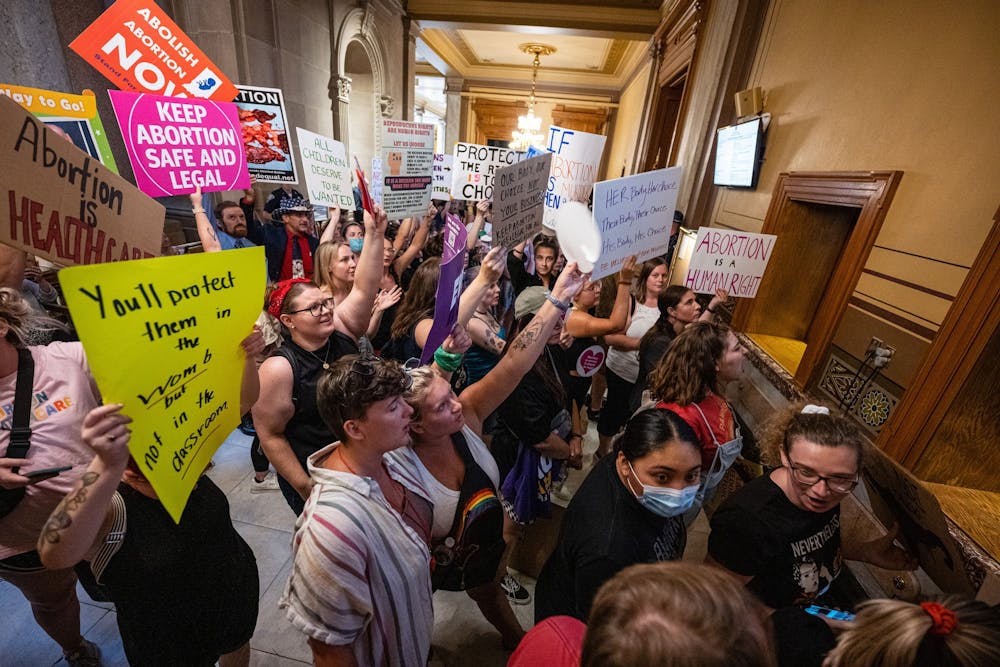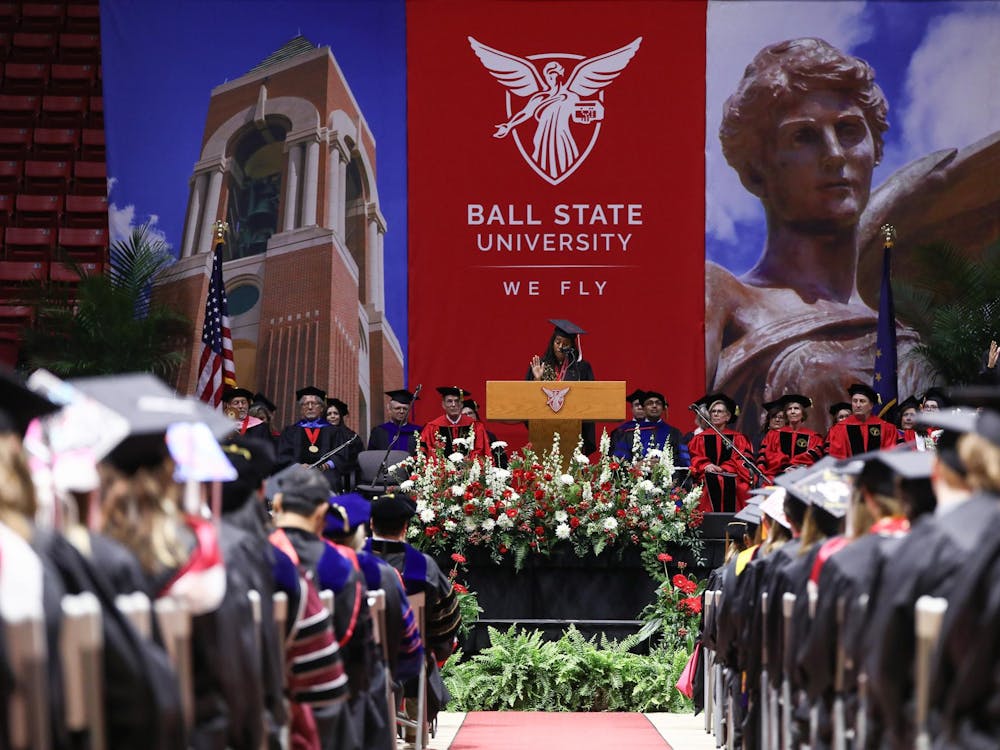The Daily News reached out to the Muncie community to hear their thoughts on SB 1. Aimee Robertson West is a 2001 Ball State University Graduate and a contributor for the Daily News, Their views do not necessarily reflect the views of the newspaper.
Roe v. Wade has been struck down, and Indiana’s zero-week abortion ban, SB 1, the most restrictive abortion ban in the United States is law. What does this mean for girls, women and pregnant people in (Middletown) Muncie, Indiana?
As a Muncie native, human rights activist and nonprofit executive, I understand the limits of coastal activism in Indiana and have organized events with human rights leaders, politicians and local and national organizations, engaging hundreds of Hoosiers, Ball State and high school students, keeping in mind that it’s not okay to say we care about people, but not care about the policies failing them. When we “don’t get political,” we ignore the harm exacted through bad policies and the lack of knowledge about them.
Here’s what Hoosiers living in Muncie/Delaware County need to know, post-Roe:
1. SB 1 goes into effect Sept. 15, and, according to the bill, it bans all abortions outside in-vitro fertilization, rape/incest and “lethal fetal anomalies.” The ACLU is leading a still active lawsuit that seeks to stop the ban from going into effect.
2. According to Power to Decide, 428,540 Hoosier girls and women below 250 percent of the poverty line live in “contraceptive deserts.”
3. Methods of contraceptives, like Plan B, birth control, contraceptives, condoms, etc, are STILL legal and available in Indiana. Open Door Health Services provides contraceptives and family planning services at low cost.
4. Out-of-state abortion referral services are legal and can be obtained through Planned Parenthoo and All Options.
5. According to AMA Journal of Ethics, crisis pregnancy centers are not required to provide accurate medical information.
Policy crises for Hoosier girls, women, pregnant people and Indiana:
1. The Indiana Coalition to End Sexual Assault and Human Trafficking reports, one in five Hoosier girls will be sexually assaulted, and Indiana’s teenage sexual assault rate is the highest in the nation for teen girls and is the second highest for college-aged women, ages 18-24. (Need help? Contact the Office of Victim Services, 1500 W. Neely Ave. (765-285-7844) or the City of Muncie’s Victim Advocacy Office at (765) 747-4777)
2. According to the CDC, Indiana hovers at the bottom of the worst five states for maternal and infant mortality (last for black women and black babies). One in five babies are born addicted to opioids in Indiana.
3. Indiana’s upward mobility, economic equality for women and child poverty also rank among the worst in the nation.
4. According to Procare Solutions, we rank worst in the nation for childcare affordability, relative to income.
5. The immediate consequence of SB 1 will be forced childbirth. More babies will be born, some into poverty, domestic violence and addiction. More mothers will die.
Enforcement
To enforce SB 1, new committees will examine the claims of women about rape and study maternal mortality. State Representative Sue Errington (D-IN 34) reports that “SB 1 proponents are preemptively writing legislation to examine potential future false allegations of rape and/or incest to qualify for abortion healthcare.”
According to the Rape, Abuse and Incest National Network, fewer than 2.5 percent of rape allegations are found to be false. Indiana has arrived at a frightening and dark place: a juxtaposition of virtually non-existent false allegations of rape against legal abortion access.
Looking to Indianapolis, Ryan Mears (D), Prosecutor for Indianapolis indicated his refusal to prosecute women and doctors in abortion cases. Delaware County Prosecutor Eric Hoffman (D), shares, “As Prosecuting Attorney, I was not elected to make or repeal laws. I was elected to enforce them.” Hoffman emphasized, “with regard to the new criminal statutes concerning abortion, I will use the same case-by-case prosecutorial discretion I do in all other cases in deciding whether to prosecute.”
Indianapolis’ Chamber of Commerce, joining numerous large scale Indiana employers, asked the State Legislature to not move forward with SB 1.
In stark contrast, Rep. Elizabeth Rowray (R-IN 35), President/CEO of the Muncie/Delaware County Chamber of Commerce, voted in favor of Indiana’s zero-week abortion ban.
We tried, we failed and we will continue.
Indiana’s state legislature is 82 percent male, and they overwhelmingly voted in favor of removing ALL exceptions and against expanding access to sexual education, contraception, which prevents unplanned pregnancies and the abortions they purport to want to stop, did not listen to most Hoosiers.
Errington, who has dedicated her political career to reproductive rights, underscores, “The only way to change these policies is to change the conservative supermajority composition of Indiana’s state legislature, transfixed currently by extremism.” Errington is advocating for a state-wide, Kansas-like referendum on SB 1.
Her message to Hoosier voters, “Register to vote by Indiana’s deadline of Oct. 11, and vote for candidates who support gender equality and reproductive rights.”
*Learn about the local, state and federal candidates asking for your vote at bipartisan Community Candidate forums, during the month of September.





